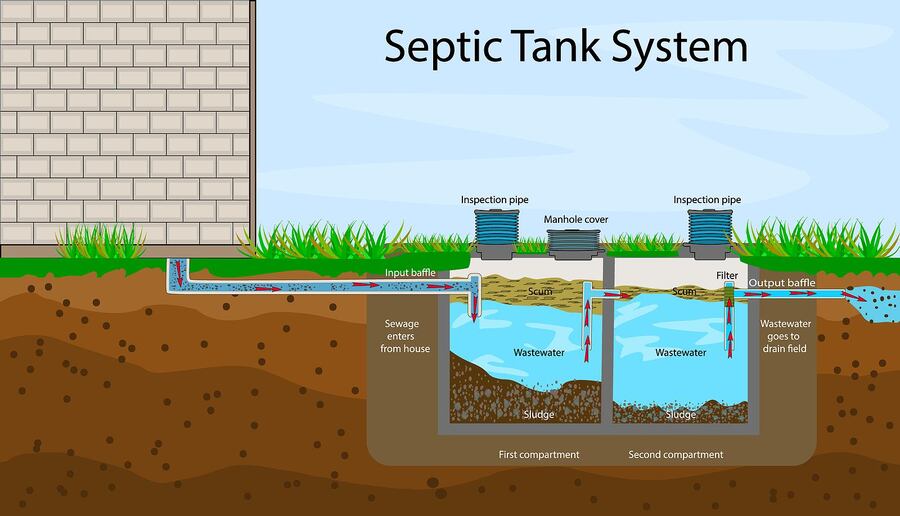
Septic systems are an integral part of many residential and commercial properties, serving as a vital component for wastewater management in areas without access to municipal sewer systems. Central to the functionality of these systems is the septic tank, a buried container that plays a crucial role in filtering and treating wastewater from homes and buildings. Understanding how septic tanks filter wastewater sheds light on the importance of regular maintenance, including septic tank pumping, cleaning, repair, and installation services provided by professional septic companies.
At the heart of every septic system lies the septic tank, a watertight container typically made of concrete, fiberglass, or plastic. Wastewater from toilets, sinks, showers, and other household drains flows into the septic tank through a network of underground pipes. Once inside the tank, the wastewater undergoes a series of natural processes that facilitate the separation and treatment of solids, liquids, and pathogens.
Upon entering the septic tank, solid waste, also known as sludge, settles to the bottom of the tank, forming a layer of organic matter. Anaerobic bacteria, which thrive in oxygen-deprived environments, begin breaking down the solid waste through a process called anaerobic digestion. This microbial activity helps decompose organic matter, reducing its volume and converting it into simpler compounds such as methane and carbon dioxide.
As solid waste settles at the bottom of the septic tank, lighter materials, including fats, oils, and grease, float to the top, forming a layer known as scum. Meanwhile, relatively clear liquid wastewater, known as effluent, occupies the middle layer of the tank. Over time, effluent undergoes further filtration as it percolates through the layers of sludge and scum, gradually clarifying and becoming clearer.
While anaerobic bacteria play a crucial role in breaking down solid waste, they are less effective at eliminating harmful pathogens such as bacteria and viruses. However, as effluent passes through the layers of sludge and scum, natural filtration processes help remove suspended solids and pathogens, resulting in cleaner wastewater. Despite these natural treatment mechanisms, it's important to note that effluent from septic tanks is not potable and must undergo additional treatment before being safely discharged into the environment.
Proper maintenance of septic tanks is essential to ensure their continued functionality and prevent potential issues such as backups, odors, and environmental contamination. Septic tank cleaning, repair, and installation services provided by professional septic companies play a crucial role in maintaining the health and longevity of septic systems. Routine septic tank pumping, typically recommended every 3 to 5 years, helps remove accumulated sludge and scum, preventing clogs and backups.
Professional septic companies offer a range of services to address the diverse needs of septic system owners. From septic tank installation for new properties to septic tank repair services for existing systems, these companies possess the expertise and equipment to ensure proper functioning and compliance with local regulations. Additionally, septic companies offer diagnostic inspections, troubleshooting, and emergency repair services to address issues promptly and minimize disruptions to daily life.
By prioritizing proper maintenance and seeking professional expertise from Rooter Septic Services, property owners can ensure the longevity and effectiveness of their septic systems, safeguarding both public health and the environment.